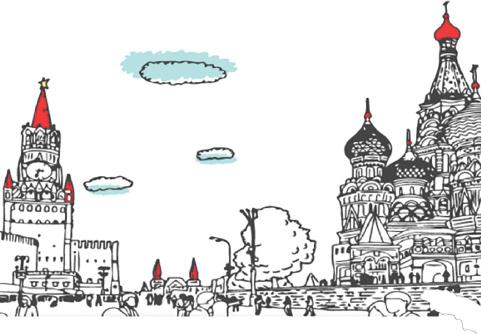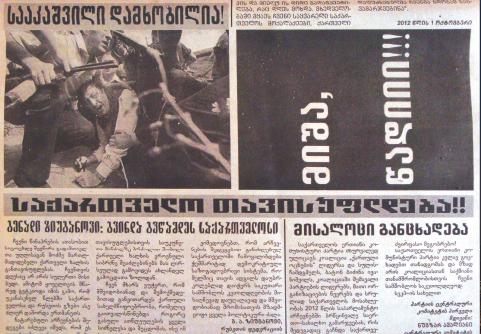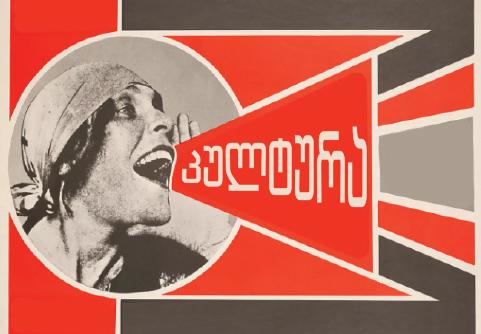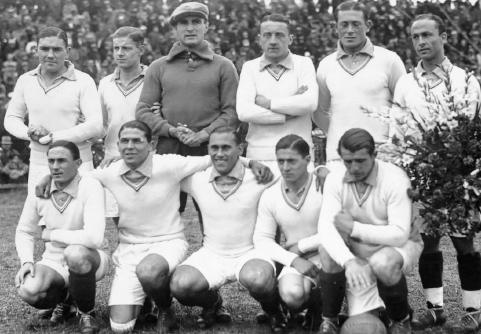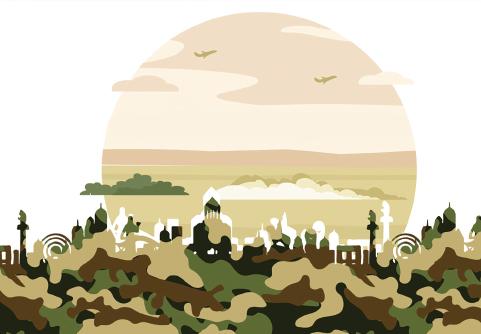
Authors : Nana Bregadze, Mariam Kachkachishvili


It is written in the strategic documents of the Ministry of Defense of Georgia that the enemy did not fully achieve its goal in 2008 and the risk of a new Russian aggression remains. This has become even more evident to us through the example of the war in Ukraine.
The government is telling us that though the threat of war has passed, the devil never sleeps. Moreover, over the last two centuries we have bitterly experienced the claws of the devil lurking in the Kremlin many times on our own skin.
As the 2008 war showed us, and the current events in Ukraine have also proven, a good and proper air defense and aviation are essential in conflicts of this type.
However, a multi-year study by iFact shows that our government has still not realized this after 14 years of its own war. For this article, we interviewed twenty current and former servicemen and former high-ranking officials of the Ministry of Defense. It is clear from what they tell us that the government has paid little attention to maintaining, properly equipping, and servicing air defense systems.
Moreover, not only have they failed to take care of the technical equipment, they have also contributed to the depletion of human resources. Our experienced pilots have left the army. Some are now serving in civil aviation, while others have left the sector and the country.
This investigation cannot be based on material derived from documents, as documents on this subject are considered a state secret by the Ministry of Defense. We cannot tell you here how much the Ministry has spent on maintaining or upgrading this equipment, but we will share with you what those working in this field have told us. According to the best journalistic standards, we consider information to be reliable if it is confirmed by three independent sources. Everything said in this article is verified according to this principle.
The security of the information source is important to iFact, so we do not disclose the names of some of our respondents, their official positions and current places of residence. The article uses only common names and their geographical locations, so that those interested are unable to recognize them.
From the stories of former and current servicemen, it is clear that after the August War, flights were periodically reduced and helicopters and planes went out of order with no one taking care of them. Finally, some of the equipment was taken off the Defense Ministry's books and some were stopped for future repairs. The modernization of these units did not start until 2020.
Five different iFact sources say the helicopters have not flown since 2014. The flight crews did not have any training or instructional flights. Therefore, they were not paid by the hour. The lack of flights invalidated their certificates. All this forced the pilots to leave the country.
Current and former Defense Force officials say that when planes stop flying – meaning they cannot be used for flying or are in such bad shape that there is no point in repairing them – they are mothballed. Former military aviation official “Rezo” explains that mothballing has its own rules.
“The main components are lubricated with liquids and greases and maintained in this condition. The engines are filled with special preservation oils. If you don't have oils, you have to run the engines once a month to complete their duty cycle. I don't have any information about how they conserved them, which liquids they used,” Rezo explains.
The mothballing of the helicopters is also confirmed by a military serviceman “David”, who is an active member of the Aviation and Air Defense Command: “They altogether went out of service en masse – simply they just considered it necessary, or there was some other political aspect, I don't know, but there were no more flights. Mothballing means that we don’t use or don’t touch or repair the equipment – we don’t do anything at all. We just mothballed, sealed it up, and it just sits there.”
At some point, the military tried to repair the damaged helicopters with their own resources. However, this later proved to be insufficient. They tell us that the mothballing and downtime of the helicopters was due to negligence on the part of the state.
“There has been no development or progress in aviation since 2008. We could not even properly maintain what we had. We, the mechanics, the technicians, were not getting the necessary spare parts to replace and install. We had twelve [American helicopters], some of which were damaged by cadets during training and were forbidden to fly; one of them had an engine failure and was stopped because of it. When I left the Defense Forces in 2018, there were two [helicopters] left that could fly,” says aircraft technician Giorgi Kochashvili.
Giorgi Mchedlishvili, a former sergeant in the US UH-1H, aka Iroquois, helicopter squadron, says that in 2016-2017 the Americans were supposed to help us repair the damaged helicopters. However, it did not happen. Eventually, the aircraft's engines and other parts of the structure exhausted their lifespan. They were neither replaced nor repaired, so they lost their viability and eventually had to be mothballed.
“There was a time when we had seven serviceable aircraft. When we had exhausted almost all the resources, they started talking about how to get them all back into service. An American National Guard team came to Georgia. They conducted a study, made an assessment, and prepared an estimate. They said that they could refurbish and upgrade 6 helicopters with new engines. If I am not mistaken, this was at the time of Izoria,” Mchedlishvili told us.
He says that working parts from one helicopter were fitted to another, increasing the aircraft's combat capabilities. They called it cannibalization: “We tried to ensure that this minimum resource, these two or three helicopters, would be able to do at least something in the time of need and could carry out at least some task. We ended up reducing the number of helicopters to two out of seven," Mchedlishvili says.
How did military aviation lose professionals?
In addition to the malfunctioning technical base, the problem has been an outflow of pilots from the army. We were told about the mass outflow of personnel from the Air Force by serving and former members of the Defense Forces. The main reason was that they had lost their function as pilots. A pilot could no longer fly and a mechanic could no longer repair planes.
Giorgi Mchedlishvili served in military aviation for 13 years. He was a helicopter mechanic and used to fly with the crew. After 2018, he had to leave his job because his profession was no longer needed and he felt he had no function.
“It was like walking in a magic circle and stalling in one place. We couldn't move forward. There was no flying, no maintenance. Nothing important was happening anymore, which meant that we were just inactive, dysfunctional. I am sure that many people felt the same way as I did,” Mchedlishvili told us.
Giorgi realized that without work he would not be able to support his family, and this prompted him to leave the country. His colleagues working in military aviation also found themselves in the same situation. They were very vocal in saying that if this continued, many would leave the aviation industry. The “bosses” did not care much and replied: “Go on, leave, no one is irreplaceable.”
“It was terribly disappointing, because for any soldier, the army is a family. He spends the best years of his life and the most time in the sector which he serves. Actually, I was in touch with my family in the morning and evening. In general, I spent the whole day in the army and leaving was not easy for me," Mchedlishvili tells us. He has been in America since 2019 and works as a truck driver.
“Training a pilot is very expensive. Imagine you train a pilot abroad, he comes back trained, and guess what? You don't have a flying machine, he can't fly... Besides, the body has to be toned, blood pressure changes, the heart is racing... If a pilot is out of shape, then all his training and finances are wasted," said Davit, a member of the Air Defense Command.
Aircraft engineer Giorgi Kochashvili said many pilots had gone to America because they were unemployed and were looking for income. He is planning to do the same. He is currently working in Poland and is planning to move to America.
“Georgian military aviation has lost too many pilots who emigrated from Georgia, who gave up the profession they loved. The equipment stopped, they could no longer fly, they could no longer do their job, and they decided that if they could not do what they wanted to do here anyway, then they would get up and leave. They left and took care of their families, they will live better there than if they stayed here,” he says.
Irakli Lekvinadze, Executive Director of Civil-Military Relations Centre, says that the Ministry of Defense acts inconsistently, it has no concrete plan for development of aviation; pilots do not know whether they can advance in their career and because of this feeling of instability they give up.
“It takes years and quite a lot of money to train a pilot. To build his career, he has to know what is going to happen in five to ten years’ time. If you change plans every year, sometimes sell the planes, sometimes mothball them, sometimes repair them, if you don’t take consistent steps, a pilot is unable to think about career growth and leaves. It is a well-paid job, and you can find a job somewhere abroad. Now 90% of pilots have left Georgia. They can be brought back if they see a perspective here,” says Lekvinadze.
"iFact tried to contact the staff who had left for America and other countries to talk about their decision. Most of them did not want to talk about it, but some agreed to be interviewed under the guarantee of anonymity. "Half of Malaysia [conditionally] is packed with Georgian pilots. We have been here since 2012, some have come now, some came last year, some five years ago. Keep in mind that we are at least 12 pilots. When they tell you that they don't need aviation and don't need pilots anymore, what other reason should there be?! There were no flights, and the pilot loses his qualifications," Rezo, a former high official of the military aviation, tells us.
Another anonymous source for "iFact", Anri, who has worked in military aviation for 11 years, claims that Mi-8 helicopter specialists were actively leaving the service in 2014-2016. The reason for this was that the Mi-8 was no longer used for flying, based on the decision of the Ministry of Defense. According to Anri, 100-120 people left military aviation during that period. They also had to terminate their valid contracts.
Those who didn't leave switched to the "Iroquois". However, it is a lower class helicopter, and operating it means degrading as a specialist. So Anri and his colleagues have opted to leave military aviation for civilian work. About 30 of them are now serving in foreign countries.
"Since 2012, the Mi-8 has actually been removed from the "table" under the pretext that foreign equipment has been imported, but this is not the case. The Mi-24, Mi-2, Iroquois and Su-25 are still in the list, but the Mi-8 is no longer in service. It is on the balance sheet of the Ministry, but it is no longer used for flights. To be honest, no one tried to keep those of us who wanted to leave, no one prevented us. Everything had already been stopped, and after all, what were we supposed to do, fly brooms?" - says Anri in a conversation with iFact.
We also applied to the Ministry of Defense for an interview. We wanted them to answer questions about what had happened to the aviation and experienced pilots. They refused to talk to us face to face and asked us to send questions in writing, but even in this form they would not communicate.
One such military pilot who left the Georgian aviation was reserve colonel Soso Osorauli. He left the Georgian Defense Forces in 2015. A 41-year-old Tushi military pilot, worked in Congo and was held captive by an illegal armed group for four months in 2017. Osorouli's family members and relatives accused Georgian authorities of not responding sufficiently to free the captive man. Soso Osorauli was killed in May 2017 while repelling an operation organized by the Congolese authorities.



